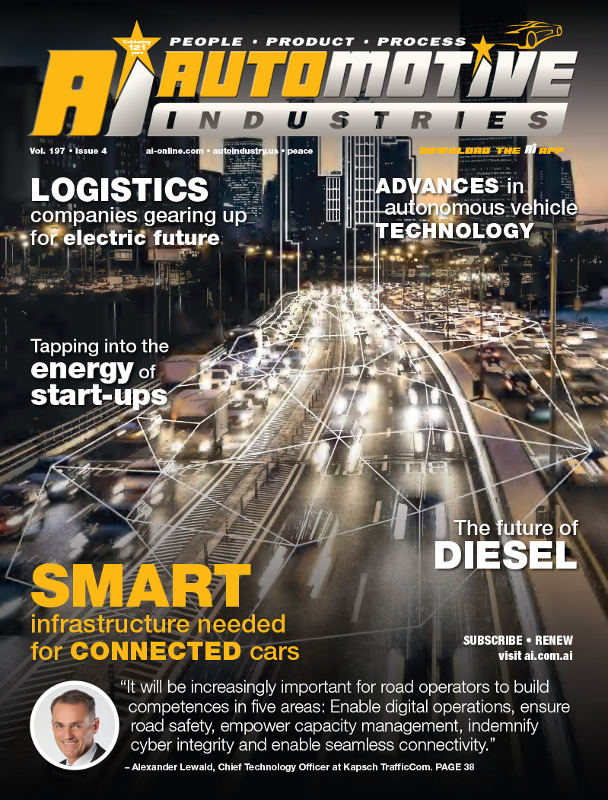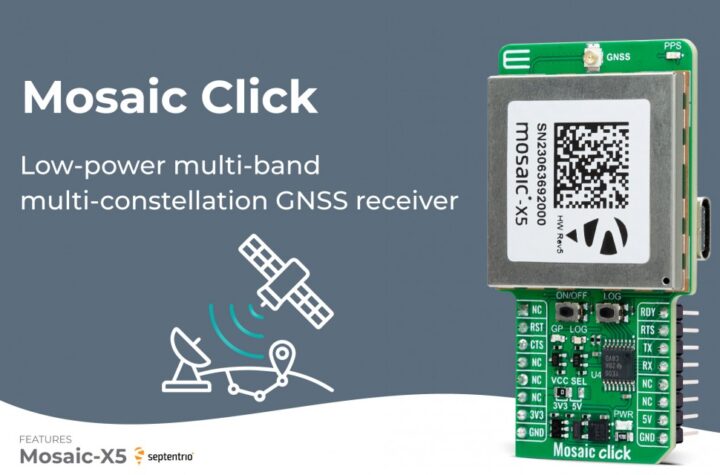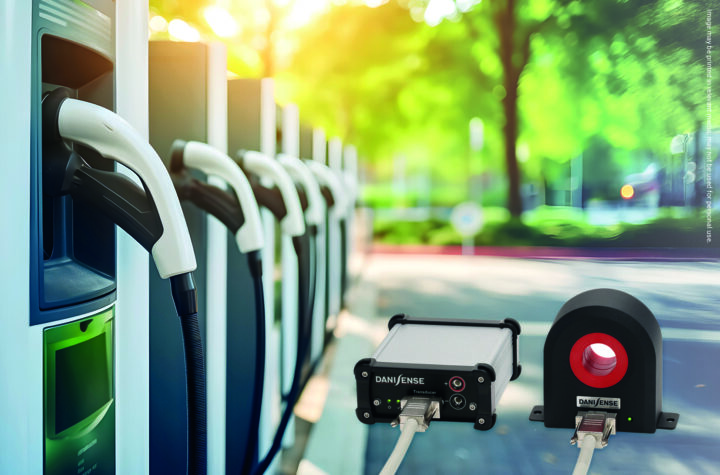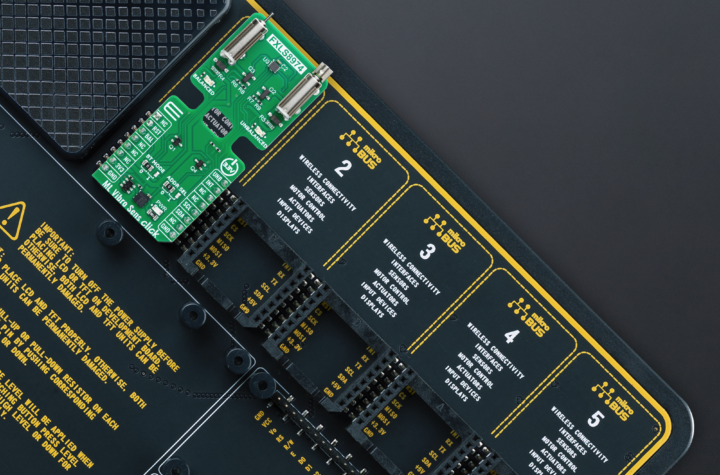
The 6th Annual Smart Mobility Summit 2018 held in Tel Aviv, Israel was hosted by the Prime Minister of Israel, Benjamin Netanyahu, the summit is an important landmark to establish Israel’s pre-eminence in automotive-based technologies.
According to the event organizers, the Smart Mobility Summit was established to explore and exhibit innovation in alternative fuels and smart mobility and bring common goals to fruition, the Summit will create a dialogue about the world’s most forward-thinking approaches to transportation, cutting edge technologies and future business models, and promote Israel’s ambitious goal of reducing 60% of the country’s oil consumption by 2025.
The Fuel Choices and Smart Mobility Initiative, Israel’s national program for alternative fuels and means of transportation, was launched in 2011 as a joint governmental effort headed by the Prime Minister’s Office. The other government ministries taking part in the initiative are: Energy, Transport, Economy, Environmental Protection, Science, Finance, Defense, Agriculture and Foreign Affairs.
The two-day event will see a gathering of the world’s most distinguished decision makers and business leaders in the field of alternative fuels for a series of on-stage interviews, panel discussions, case studies, and brainstorming sessions. There will be a cutting-edge exhibition of new and upcoming start-ups, as well as car manufacturers and alternative fuels companies at the forefront of implementing innovation in transportation. The event will wind up with an invitation-only Gala dinner hosted by the Prime Minister in which he will award the 2018 Samson Prime Minister’s Prize for a major breakthrough in the field of alternative fuels for transportation.
There are a number of Israeli companies that will be showcasing their cutting-edge technologies at the two-day summit. One of them is Nexar which is a real time network connecting cars nearby enable to warnings in real time. Nexar employs machine vision and sensor fusion algorithms, leveraging the iPhone’s sensors to analyze and understand the car’s surrounding, and provide unique documentation in case of accidents. The Nexar Network unlocks huge positive externalities as it grows from thousands to millions of nodes and digitises the roads. The more the network grows, the fresher and more relevant the digitisation and the overall utility of the network becomes. Instead of having to deploy expensive infrastructure to monitor the roads, requiring both an upfront investment as well as continued operational expenses, this network grows organically, just because it provides value to all the individual participants of the network.
The company most recently announced the pre-launch of its first API, Lights, as part of a new data platform. Lights API is Nexar’s Traffic Lights Prediction API that will provide real time predictive and timing information about the color of every traffic light in a given city. According to the company, Lights is an essential first step in creating a new kind of map: an ever-evolving stream of data about every object on the roads traffic lights, vehicles, pedestrians, street signs, cyclists, street lights, emergency cars and more. The anonymized data for this platform is sourced from its app users who are part of the company’s continuously growing safe driving networks – no external sources of data are needed and is analyzed using computer vision and AI. Because its safe driving network is the source of this data, the Nexar platform is also easily scalable.
“We decided to initiate our data platform with a real time traffic light prediction service because we see how dangerous intersections are on a daily basis. Running red lights is the cause of some of the most devastating collisions seen on the road, and at Nexar we’ve seen our fair share of them. A significant chunk of these collisions are a result of drivers’ miscalculation of the time they have at a given light or the duration of the light, which we can fix by providing drivers with this traffic light prediction service. Moreover, in our studies we’ve seen that providing traffic light prediction to drivers reduces their level of anxiety and increases their peace of mind at an intersection. We even think there is a chance that by providing this information, we might see a reduction in how often people text and drive, one of the main causes of fatal collisions on the road,” says the company.
According to Nexar, Lights will be rolled out for select alpha partners in Q3 and Q4 this year and for general availability by the end of Q1 2019. Initial supported cities are NYC, SF, and Las Vegas – with 30 additional US cities planned in the next year. According to Nexar, the ability to estimate and predict the position of all vehicles at any point in time has the potential to almost completely eliminate all road casualties. As autonomous vehicles develop, this mobility network becomes a virtual sensor for the vehicle, allowing sensing the road beyond line of sight.
Another Israeli company that will be at the Smart Mobility Summit 2018 is Argus Cyber Security, which is a global leader in automotive cybersecurity. The company delivers multi-layered, end-to-end solutions and services to protect connected cars and commercial vehicles against cyber-attacks. Argus also provides OEMs an over-the-air (OTA) software update solution that enables them to quickly and cost-effectively improve performance and security as well as deploy new features throughout the vehicle lifespan. Ranked number one in third-party evaluations, Argus technologies are built on dozens of granted and pending automotive patents and rely on decades of experience in both cyber security and the automotive industry. Argus’ customers include the world’s largest OEMs and Tier 1 suppliers, and its partners include leading industry players.
According to Argus, looking forward, by 2020, virtually all manufactured vehicles will come with embedded, tethered or smartphone mirroring connectivity. Already in the first quarter of 2016, cars accounted for one-third of all new cellular devices. No longer a pipe dream of futurists, car connectivity has pervaded the automotive industry and recent white hat hacks of both private cars and commercial vehicles prove the ever-present danger, says the company.
“Luckily, customer safety and satisfaction are the foremost concerns for automakers. As such, like a baby fresh out of the womb, connected cars will get constant oversight and protection too. Original Equipment Manufacturers, Tier 1s, regulatory bodies, insurance companies, technology companies, telecommunications providers and organizations affected by the new attack landscape are all working to strengthen the industry’s cybersecurity posture,” says Argus.
Ofer Ben-Noon is co-founder and CEO of Argus Cyber Security. Seeking to leverage the unique technical skills of the founders and create a company that positively contributed to the world, Ofer co-founded Argus in 2013 to protect connected vehicles against cyber attacks. Serving as a Captain in the Israel Defense Forces’ esteemed cyber intelligence unit 8200, Ofer gained over a decade of cyber security experience and took part in two Israel Defense Prize winning projects. He was recognized by Forbes as one of Israel’s “Top 30 under 30” and was chosen by Wired Magazine for its short list of exciting individuals and groups bringing about the next wave of digital security.
This June, Argus announced a partnership with Phantom Auto, a leading provider of teleoperation safety technology for automated vehicles, to integrate Argus’ Connectivity Protection into Phantom’s technology to detect and block attacks in real-time and prevent them from proliferating to the in-vehicle network. “As the automotive ecosystem includes more and more technologies to enable connected and automated vehicles, the need for a multi-layered, holistic cybersecurity solution becomes absolutely imperative,” said Yoni Heilbronn, Argus Cyber Security Chief Marketing Officer in a June 2018 press release. “The automotive industry must proactively prepare for the cyber security challenges that connected and automated vehicles pose. Together with Phantom Auto, we are proving how safety and security go hand-in-hand by protecting and effectively enabling a new life-saving teleoperation technology.”
“It is vitally important that lifesaving AVs are deployed rapidly and at scale, but it is imperative that the deployment is optimally safe and secure,” said Shai Magzimof, Phantom Auto CEO in the same press release. “By using Phantom Auto’s teleoperation safety technology, driverless AVs will have a highly-trained human in the loop, who can safely drive the AV in the event the vehicle cannot safely operate. But the connectivity that enables this comes with inherent cyber risks, which is why we are ensuring the highest level of protection for our teleoperation safety technology by partnering with Argus.”
Arbe Robotics, another Israeli firm that will be at the Smart Mobility Summit 2018, is the world’s firm company to demonstrate 4D high-resolution imaging radar. The company has an end to end radar system, based on patented hardware, signal processing and 4D modelling algorithm. The company says that this is the next generation in safety products for vehicles.
Arbe Robotics’ proprietary, patented, radar processing method is a full-stack 4D imaging system, which provides a cost-effective, long-range, high-resolution radar solution, providing improved products for level 2 automation at a lower cost, enabling level 3 automation as well as level 4 and 5 fully autonomous driving for the automotive industry. The Company’s platform implements two advanced technologies to create a full, comprehensive sensing solution for vehicle autonomy: ultra-high-resolution radar and Simultaneous Localization and Mapping (SLAM).
“This unique technology not only enables safer driving thanks to its full adaptive cruise control, highly accurate emergency break and real-time blind spot monitoring – it provides level-4 full autonomous driving. Our radar system offers an extremely high resolution at long, mid and short ranges in both azimuth and elevation, and outputs an image of the environment in a point-cloud format at up to 50 times per second. Our patented SLAM platform creates a full 3D shape of the objects; it then tracks them, localizes the car and classifies them on the map at 25 times per second,” says the company.
“Since our initial funding round, our 4D high resolution radar has reached the resolution of optic sensors with the reliability and maturity of radar technology disrupting the automotive imaging sensor market,” said Kobi Marenko, co-founder and CEO of Arbe Robotics in a July press release when the company raised an additional USD 10 million capital. “We are excited by the opportunity this additional funding provides, as we advance our R&D to develop new microchip sets this year and seek to support the entire family of System of Chip (SOCs) radar. This latest investment, combined with our relentless focus on cutting edge technology to provide an unmatched mobility solution, will enable us to broaden our market reach, particularly within the Chinese market.”
The $10 million investment was led by 360 Capital Partners, a European venture capital firm with significant investments and experience in the global automotive space. Arbe’s existing shareholders – Canaan Partners Israel, iAngels, Maniv Mobility, OurCrowd, O.G. Tech Ventures the VC arm of Eyal Ofer and Taya Ventures – also participated in the funding, illustrating their continued confidence in Arbe Robotics’ future development.
Another Israeli company to watch out for at the Smart Mobility Summit 2018 is Tel Aviv-based VAYAVISION. The company’s leading perception engine provides vehicles with crucial information on the dynamically changing driving environment for safer, more reliable autonomous driving. The software engine encompasses state of the art raw data fusion with up-sampling, AI and computer vision. Recently, VAYAVISION got USD 8 million funding from Viola Ventures, Mizmaa Ventures, and OurCrowd with strategic investment from Mitsubishi UFJ Capital and LG Electronics. The company is planning to use the capital injection for marketing efforts and focus on building partnerships across the world, according to a news report.
According to the company, VAYAVISION, which was launched in 2016, addresses the heart of the autonomous vehicle challenge; it understands and monitors the changing environment with the most advanced 3D sensing and cognition algorithms. VAYAVISION’s system generates precise 3D modelling of the vehicle’s environment using a fusion of raw data from multiple sensors; LiDAR, cameras and RADAR. Integration of deep understanding of the data, machine vision algorithms and Deep Neural Networks provide better cognition essential for SAE level 3 or higher autonomous cars. The result is less missed detections and less false alarms by the auto-piloting platform, says the company. As part of the solution, VAYAVISION provides an advanced “Point & Shoot” LiDAR that has high frame rate and ultra-HD resolution while staying affordable for mass-market deployment.
VAYAVISION’s VAYA-Drive is the company’s AI Cognition platform based on raw data fusion that provides a full environmental model for object identification, classification, and tracking. Plus it helps traffic and road sign identification apart from lane detection and sensing which road/lane is free.
Foretellix Ltd, an Israeli startup develops GigaScale Intelligent verification framework for Intelligent Autonomous Systems (IAS), with an emphasis on Autonomous Vehicles (AVs).
Foretellix founders: Yoav Hollander, Founder and CTO, Ziv Binyamini, CEO, Co-Founder and Gil Amid, VP Operations & Business Development, Co-Founder, have spent decades developing advanced verification solutions. Coming from semiconductor and software industry heavy weights such as Intel Corp and Cadence Design Systems.
The company provides advanced solutions for inspecting the smart systems of autonomous vehicles. Foretellix’s verification process automates safety testing in self-driving vehicles, including millions of potential safety scenarios. It also develops a language that can serve as a standard for describing autonomous vehicle scenarios.
Foretellix recently announced that it has completed a $14 million series A funding round led by 83North, Jump Capital, and Nextgear Ventures. The company was founded in 2010 and is based in Tel Aviv, Israel.
Automotive Industries spoke to Yoav Hollander, Founder and CTO, Ziv Binyamini, CEO, Co-Founder, Foretellix.
AI: Please describe how Foretellix came about?
A while back, there was a sort of a crisis in the semiconductor industry – chips became very complex and the testing / validation methods of the time were not up to par with level of complexity. This crisis led to the birth of Verisity – a company founded by Yoav to which I joined in an early stage. Verisity underwent an IPO and was later sold to Cadence. After we helped in shaping the way chips are being verified today with tools and methodologies used by semiconductor giants, Yoav decided to find his next challenge and started investigating autonomous systems. He has being looking into this field for the last 6 year and realized that the methodology called Coverage Driven Verification used to verify complex chip together with the right adaptation and tools can be very effective in verifying AVs and ADAS. About a year ago Yoav decided to found Foretellix and I joined him in helping with the biggest barrier to AV deployment – Safety.
AI: What has been the main challenge in developing Foretellix’s verification process?
Since we come from semiconductors we had to work hard in understanding the needs and complexities of the automotive market and I can honestly say it is very complex. We are continuously improving our tools, learning from the car makers we are working with on the subtleties of verifying AVs and ADAS. On the positive side, during this learning process we are constantly reassured our tools provide real value to AV stack and ADAS creators in complete, measurable and efficient verification.
On the operational side, as a small startup that has a lot of demand to its product we struggle with expending the team in a pace that fits the demand. Good SW and Algorithm engineers are not easy to find but we are getting there
AI: How do you see this technology being deployed and utilized by carmakers regulators and service industries?
We hope that more and more carmakers will see the great benefits our methodology and tools bring when it comes to covering the huge scenario space required to truly verify the autonomous vehicle behavior. We believe that the ability to achieve measurable safety and transparency is something that is lacking in the automotive industry today when it comes to AV and ADAS development. With our tools regulators could set the bar for what is considered safe while car makers, insurance companies, certification bodies and all of the ecosystem will be able to assess one AV stack vs another based on scenario coverage and measurable metrics.














More Stories
Sika – where battery storage technology for EVs, wind and solar meet
Battery pack solutions from PPG
Cybord TCI – The Future of Manufacturing Integrity